- Home
- Aharon Appelfeld
All Whom I Have Loved Page 18
All Whom I Have Loved Read online
Page 18
“I made a mistake,” said Father, taking a swig from his flask.
Sometimes at midday, but mainly during the evenings, we would light a bonfire, prepare coffee, and sit for hours gazing at the fire. Occasionally a word or two escaped from Father. It was hard to know if they were of blame or regret.
And so we arrived at the home of a storekeeper whom Father had called “my cousin,” because he had also been orphaned in his childhood and had grown up in the orphanage in Czernowitz not that many years before Father. The Jew welcomed us and immediately went to prepare tea. His house was a small shed-like structure in the heart of the hills. The two large oaks next to it only showed how low the house was. The storekeeper had lived there for thirty years, occasionally trying to get away from that lonely place but without success. All those years, with the help of the local police, whom he bribed, he had struggled against thieves and robbers. Now the police and the robbers had made a pact, and not a night went by without intimidation or a robbery. The previous evening they had stolen his horse, and now he was completely cut off.
“Don't worry,” said Father, and showed him his revolver.
“You use a gun?” The storekeeper was taken aback.
“Sometimes, when there's a need for it.”
“It didn't occur to me that it's possible to buy a revolver.”
“Why?”
“I don't know.”
We slept at the storekeeper's house for two nights. When we were about to set out again, he asked us to stay another night. Father was reluctant to, but in the end he gave in to the man's entreaties. It was a clear summer night, full of moonlight and the scent of fresh water. We sat in the yard and drank tea. Father rallied and confided to the storekeeper that he intended to return one day and draw the surrounding landscapes.
“What do you find in them?”
“Exceptional beauty.”
“I look around and see only trouble.”
Father spoke about the need to uphold one's honor and protect oneself. “We have to hit back at the thugs and the anti-Semites. We must give them back as good as they give. Yes, life is precious, but there is something more precious—self-respect.” Father talked and talked; it had been a long time since I had heard him speak with such fluency. Hearing this flow of words, the Jew looked at him and said, “You're still young; you don't know what a nest of vipers there is here.”
“I do know,” replied Father decisively.
“How's that?”
“From my fist; I take no pity on scum.”
“I understand,” the storekeeper said, and fell silent. We sat there until late, and at midnight we went to sleep.
Toward morning, before it was light, Father heard noises and opened the window. The robbers fired and Father fired back. If he hadn't jumped from the window and run after them, perhaps he wouldn't have been injured. Father gave chase, shot, and was hit. The storekeeper and his wife fell to their knees and bandaged his wound. Father was weltering in his own blood; he let out a horrible rattle and then fell silent. The storekeeper wrapped him in his coat and muttered, “You're still a child; you shouldn't see this.” But I saw, and what I didn't see, my ears had heard.
A young peasant came riding up on a horse, and the storekeeper asked him to summon the Jews in the hills. The peasant rode off again, and the storekeeper shouted after him, “I'll pay you when you return.” The storekeeper lifted Father up, carried him into the house, laid him on the floor, and covered him with a sheet.
I was sure this was a bad dream and that as soon as it faded Father would get up from the floor and we would be on our way. I stood where I was, and the longer I stood there, the more pressure I felt in my head.
Before long, Jews came streaming down from the hills. The storekeeper hastily told them what had happened, that Father had chased after the robbers and been shot. They immediately surrounded me so that I wouldn't see the angels of death, but I had already seen them in the form of great birds, landing on the trees in the yard.
I tried to push through to see Father, but people blocked the entrance to the room where he lay. I thought that they were hurting him. “Don't hurt him!” I shouted, and tried again to push through. Immediately everyone surrounded me.
Then they shut the door, and I didn't see what they were doing inside. The storekeeper's wife came outside and poured out buckets of water. The water flowed, then seeped into the earth. The sight of this water filled me with dread, and I ran to the blocked door. It opened and an intense prayer burst out from inside. I tried to break through the wall of people so I could see Father get to his feet, but people stopped me. “Father!” I managed to shout before falling to the floor.
67
Then they placed Father on a stretcher, and everyone set out. Wagons carrying peasants came from the opposite direction, and we moved aside so as not to bump into them. The path was green, and when we got to the hill, the sun was already sinking. Now I was sure that Father would break through and start hitting the people who were jostling him, just as he had beaten up that man who had provoked him in the hotel.
The irritating muttered prayers grew louder with every passing moment. I felt suffocated, and a shout escaped from my throat. The shout must have given me strength, for I shook myself free of the people who were clutching me, and I ran to the river. When I glanced back, I saw people running after me and surrounding me. I had run fast, and I must have gone quite some distance. The people who caught me were breathing heavily, and they dragged me back by force. The moment they eased up, I again tore myself away, but from the thicket two captors quickly emerged in ambush: two Jews in black garb.
The prayers began again. “Father! Father!” I shouted, and I spat. This must have been too much for them, because one of the Jews slapped me. The slap loosened a floodgate of tears, which ran down my face. Then they must have hidden Father from me.
On the way home, I was already bound hand and foot. People gathered around and talked to me, but I heard only my own voice: “Father! I want Father!” It was a long walk, and after a while people stopped talking to me.
Even when we returned to the house they didn't loosen my ropes. The storekeeper's wife brought me soup and coaxed me to taste it. Men stood and prayed. The muttering seeped into me. “Father! Father!” I shouted. Darkness fell and everyone dispersed; I stayed with the storekeeper and his wife. The two of them sat next to me and talked to me. I heard them, but I didn't understand a word they said. The thought that at night I could still free myself from the bonds and run away helped to stop my tears, and I fell asleep.
I slept for hours. When I woke it seemed to me that I was in the inn next to the monastery, but then I saw the bearded storekeeper and his wife, and I remembered where I was. In spite of this, I said, “I have asthma.”
“What?” The mouth of the storekeeper's wife gaped open.
“I have asthma,” I repeated, but I immediately understood that my words were out of place.
How long was I with them? I don't remember. They, for their part, did not loosen my bonds, and I had to stay tied to the bed, shouting and sleeping by turns.
One morning the storekeeper put me in a wagon and the three of us set out. It was summer, and the light hurt my eyes. As we drove under the tall trees I suddenly saw Father. He was tall and broad, his head inside the collar of his coat, his eyes surrounded by black circles. I wanted to shout but I couldn't. I was filled with his silence.
After a while, the storekeeper stopped next to a well to let the horses drink, and he offered me some water, too. I refused. We took to the road again, and then we were in the heart of the forest.
Toward evening we reached Czernowitz. I was astonished that people could be strolling about the quiet, shady avenues without seeing that Father and I had merged, and that now nothing could come between us. The wagon traveled down several streets. I heard the tap-tapping of Father's shoes, and I was certain that we were now going straight to the church refectory.
The storekeeper's w
ife started to talk to me again. I didn't answer her. Her face was pale and ugly, and it seemed to me that she was about to open her mouth and scream.
The wagon stopped outside the orphanage. The storekeeper lifted me up in his arms, and his wife knocked at the gate. The gatekeeper asked something, and the woman pointed to her husband and me. Here, too, I tried to run away, but the storekeeper was strong and grabbed my ankle and arm. The man in the office asked me my name, and I told him. When he heard it, he asked if I was the son of Arthur Rosenfeld.
The clerks who sat in the adjoining office stared at me and asked how Father was. The storekeeper told them. That was on the sixteenth of June, 1938, and I was sure that in the evening Father would come to fetch me, as he always did. The storekeeper and his wife, after they told the clerk whatever they told him, seemed pleased with what they had done, and they left.
“What would you like to eat, Paul?” asked the clerk in a very practical tone of voice.
“I don't want anything,” I said without looking at him. “I'm waiting for Father.”
“Your father won't be coming so quickly. You have to have patience, and in the meantime you have to eat something,” said the clerk, and he went off to make a sandwich.
This is a work of fiction. Names, characters, places, and incidents either are the product of the author's imagination or are used fictitiously. Any resemblance to actual persons, living or dead, events, or locales is entirely coincidental.
Translation copyright © 2007 by Schocken Books, a division of Random House, Inc.
All rights reserved. Published in the United States by Schocken Books, a division of Random House, Inc., New York, and in Canada by Random House of Canada Limited, Toronto. Originally published in Israel as Kol Asher Ahavti by Keter Publishing House Ltd., Jerusalem, in 1999. Copyright © 1999 by Aharon Appelfeld.
Schocken Books and colophon are registered trademarks of Random House, Inc.
Library of Congress Cataloging-in-Publication Data
Appelfeld, Aron
[Kol asher ahavti. English]
All whom I have loved / Aharon Appelfeld; translated from the Hebrew by Aloma Halter.
eISBN: 978-0-307-48132-0
1. Holocaust, Jewish (1939 –1945)—Ukraine—Fiction. 2. Jews—Europe, Eastern— Fiction. 3. Antisemitism—Soviet Union—Fiction. I. Halter, Aloma. II. Title.
PJ5054.A755K6513 2006
892.4'36—dc22 2006044283
www.schocken.com
v3.0

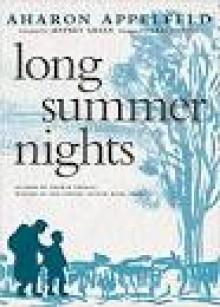 Long Summer Nights
Long Summer Nights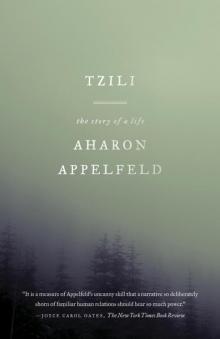 Tzili
Tzili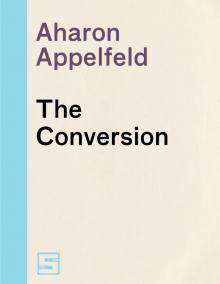 The Conversion
The Conversion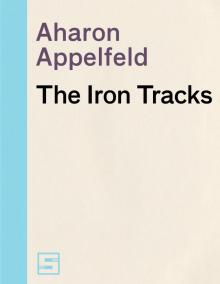 The Iron Tracks
The Iron Tracks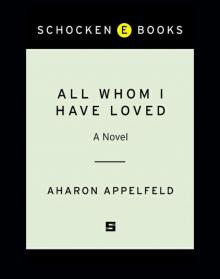 All Whom I Have Loved
All Whom I Have Loved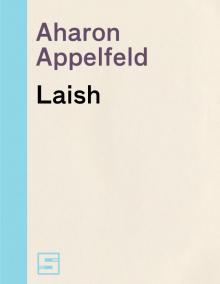 Laish
Laish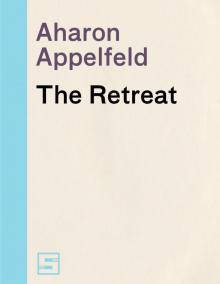 The Retreat
The Retreat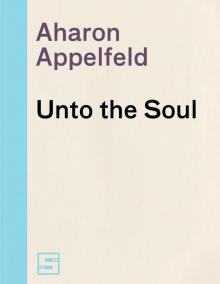 Unto the Soul
Unto the Soul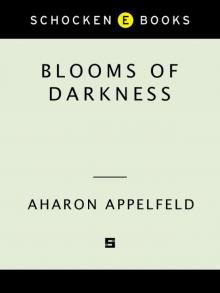 Blooms of Darkness
Blooms of Darkness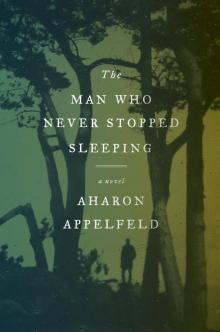 The Man Who Never Stopped Sleeping
The Man Who Never Stopped Sleeping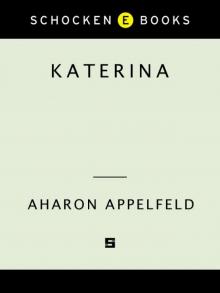 Katerina
Katerina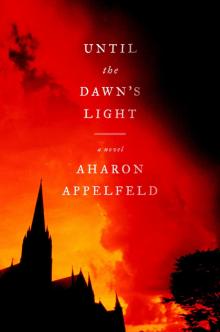 Until the Dawn's Light
Until the Dawn's Light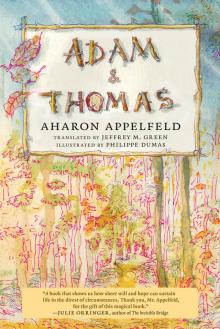 Adam and Thomas
Adam and Thomas Suddenly, Love
Suddenly, Love